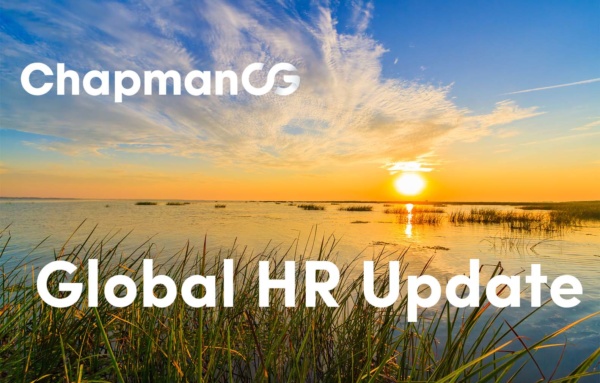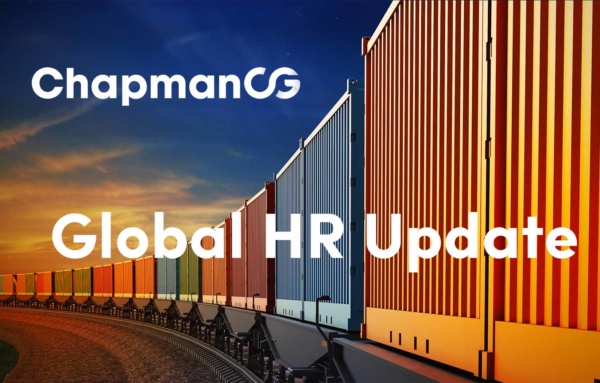Intense Competition for Singapore's Sophisticated (and increasingly expensive!) HR Talent Base
Within Asia Pacific, Singapore is a sophisticated but tight market for HR talent. Our clients are often surprised at the rising costs in that geography in particular. Whereas 5-10 years ago there was about a 20% differential between Singapore and Hong Kong for top HR talent, the costs are now very close between Singapore, Hong Kong, Shanghai, Tokyo and Sydney, and they are now on par with major U.S. and European cities on a like-for-like basis. Here are some reasons why we are seeing such intense competition — and rising costs — for Singaporean HR talent.
Small Population, Very Low Unemployment Rate
Singapore’s population is small — 5.4 million, of which 3.3 million (approx. 60%) are citizens and the rest foreigners. Its unemployment rate is consistently very low with Q3 2013 at 1.8%. According to Singapore’s Ministry of Manpower, the employment rate rose to a new high in 2013 as more women and older residents joined the labour force amid a tight labour market. 79.0 per cent of residents aged 25 to 64 were in employment, up from 78.8 per cent in 2012 and 71.8 per cent in 2003.
A Well Educated and Diverse Talent Base
Singapore is an attractive regional and global headquarters location, with excellent infrastructure, a very business-friendly government, a clean and low crime environment and a very well educated executive talent base. Singapore is the only Asian country where the official language is English, and the English language fluency of its citizens is attractive to multinationals. In addition, most Singaporeans speak another language — such as Mandarin, Bahasa or a Chinese dialect. Singapore also sports a diverse industry mix and its HR talent is reflective of this. In contrast, with many multinationals moving their headquarters to mainland China, Hong Kong has become more of a hub for financial and professional services and much less diverse in terms of industry mix.
Brain Drain
According to the then Minister Mentor Lee Kuan Yew in 2008, Singapore experiences a loss of “about 4 to 5 percent of the top 30 percent of its population every year.” As such, the problem of brain drain in Singapore is extensive and significant. In fact, the rate of loss of talent in Singapore is “one of the highest in the world on a per capita basis” according to Lee. Some of the reasons cited for this are:
- Education opportunities: Singaporeans can afford to attend the world’s best schools.
- Immigration: for reasons of lifestyle, international careers, insufficient political freedom, avoiding compulsory military duty for young adult males.
- Global career opportunities: especially in growth markets such as China, where Mandarin language skills and Asian cultural understanding are assets which command top salaries.
Competition for HR Talent within Singapore
As a major regional and global business hub, the competition for top talent within Singapore is intense. With U.S, European and Asian multinationals increasing their investments in this city-state, and locating key functions there, the pressure on the small talent pool continues to increase. We are certainly continuing to see a growing number of regional and global HR roles being relocated from other parts of the world into Singapore due to the growing importance of Asia Pacific to U.S. and European multinationals.
Within the Human Resources profession, there is a very small supply of managerial talent — and an even smaller pool which would be suitable for leading multinationals. Top talent (and even fairly average talent) will routinely receive multiple calls about job opportunities within the course of an average working week. As a result they can be ‘spoiled for choice’ and companies have to work hard to attract them.
Conclusion — A Rapidly Evolving Market
The cost of senior HR talent continues to increase. As stated above, regionally experienced Singaporean HR leaders (especially those with Mandarin language skills) are now almost on par cost-wise with counterparts in Hong Kong, Shanghai and Tokyo — and rapidly approaching U.S. and European levels. (On a like-for-like basis, i.e. for the same level of capability, the costs in Asia are now higher than in the West for top HR talent.). At the same time, the relative level of training and exposure to global best practice is for the most part lower than in U.S. and European headquarters locations for these reasons:
- Sophisticated HR practices are new in the region. As recently as 5-10 years ago, the HR function was largely administrative, with strategic decisions being driven from outside of the Asia region.
- Very few Singaporeans have been moved around the world by their companies and given international exposure. Some have been fortunate enough to have been trained and mentored locally by seasoned expatriate bosses. However, the numbers are still very small.
- Talent supply and demand due to the factors mentioned above, which has driven up costs dramatically for top managerial and specialist HR professionals.
As a result, the cost/value equation for Singaporean HR talent can be (surprisingly) challenging from a global HQ perspective. We don’t see salary trends changing over the next few years as the war for top Singaporean talent continues. However, with a growing number of top regional and global HR positions moving to Singapore and with Singaporeans being given a more opportunities to learn and grow as HR practitioners, we also forecast a continued rapid growth in sophistication of Singapore’s HR talent base as it gets greater exposure to global best practice. Over time, the cost/value equation should therefore start to make more sense as Singapore’s HR leaders start to gain recognition as being among the world’s best.
 Andrea Merrigan
Andrea Merrigan Orelia Chan
Orelia Chan Stanislav Medvedev
Stanislav Medvedev Fleur Daniell
Fleur Daniell Finian Toh
Finian Toh Tim Rayner
Tim Rayner Nicola Hasling
Nicola Hasling Stefanie Cross-Wilson
Stefanie Cross-Wilson


